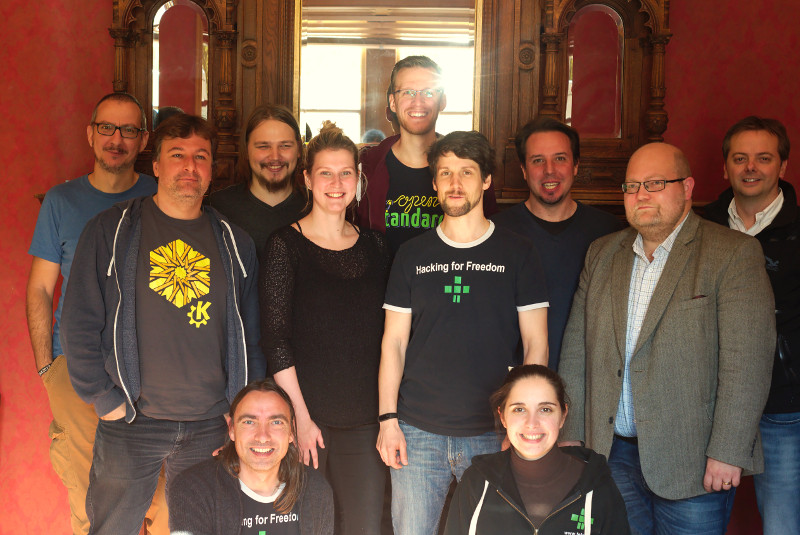2018 internship positions as student interns
mardi 14 novembre 2017 à 00:00FSFE is a charity dedicated to empowering users to control technology. We are working to build freedom in digital society. We operate in a lively environment with volunteers from many countries. We are looking for students who can join our team in Berlin for three months or more as a mandatory part of their studies or before graduation.
What we can offer is: A challenging and exciting time with a dynamic NGO working internationally A close-up view of organisational and community processes A chance to take the initiative and put your own ideas into practice The opportunity to meet and work with Free Software advocates across Europe
What you'll do: Contribute to FSFE's ongoing projects, working with one or more of our staff and volunteers. Communicate with contacts from the FSFE community, NGO, industry, and public administrations. Coordinate volunteers and others in the work on various projects. General office tasks. Find your own strengths, and do something you care about.
Be sure to read our pages about internships in general before applying!
Basic detailsLocation: Berlin, Germany. Please note the FSFE has no ability to help with accommodation or travel, you will need to cover this yourself and arrange this prior to your internship.
Duration: 3 months full time at 35 hours per week, starting as agreed. If the internship is a mandatory part of your education, the internship duration can be longer.
Compensation: This internship is salaried with a basic salary of €450 per month.
QualificationsYou should have some experience or a considerable interest in Free Software. Your field of study doesn't matter, but you should be able to relate it to our work. Traditionally, a lot of interns in the FSFE have a legal or political science background, but we've also had interns working with us with a more technical or other social science background.
Formal requirementsYou must be fluent in English and will be required to show that you can legally work in Germany; either by being an EU citizen, or by having a residence and work permit for the duration. The FSFE can not help you in getting either of these documents, but we will accept them if you have them.
The internship must be a formal part of your education, or, if you do the internship on a voluntary basis, you must do the internship before you graduate and in direct connection with your studies.
You must also have a German tax number which you get by registering with the residents registration office (Einwohnermeldeamt) in Germany. This should ideally be done before starting the internship, or at latest on the first days of your internship.
If the internship is a formal part of your education, you also need health insurance which is valid in Germany, for example the European Health Insurance Card.
Application deadlineThere is no fixed application deadline for these positions. We accept interns regularly throughout the year, but to facilitate with our planning and to increase the chances of us being able to accommodate you for an internship, you should ideally send your application at least six months before your intended starting date.
How to applySend your application containing a letter of motivation, a CV by e-mail to office@fsfe.org. Please make sure to write clearly you apply for the internship position with reference SI-2018. We prefer to receive your documents in PDF format.
Contact personsIf you have any questions about the position or any administrative details in connection with it, you're welcome to contact:
Jonas Öberg about the positions themselves, and the work involved Ulrike Sliwinski for any administrative questions
Both will be reading and responding if you send your question to the contact@fsfe.org address. We look forward to reading your application!
Support FSFE, join the Fellowship
Make a one time donation

